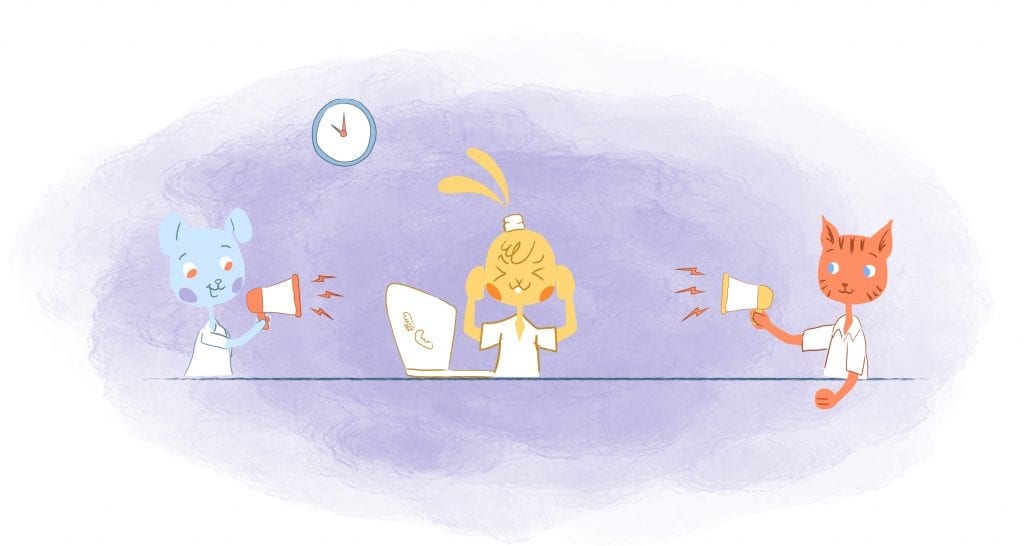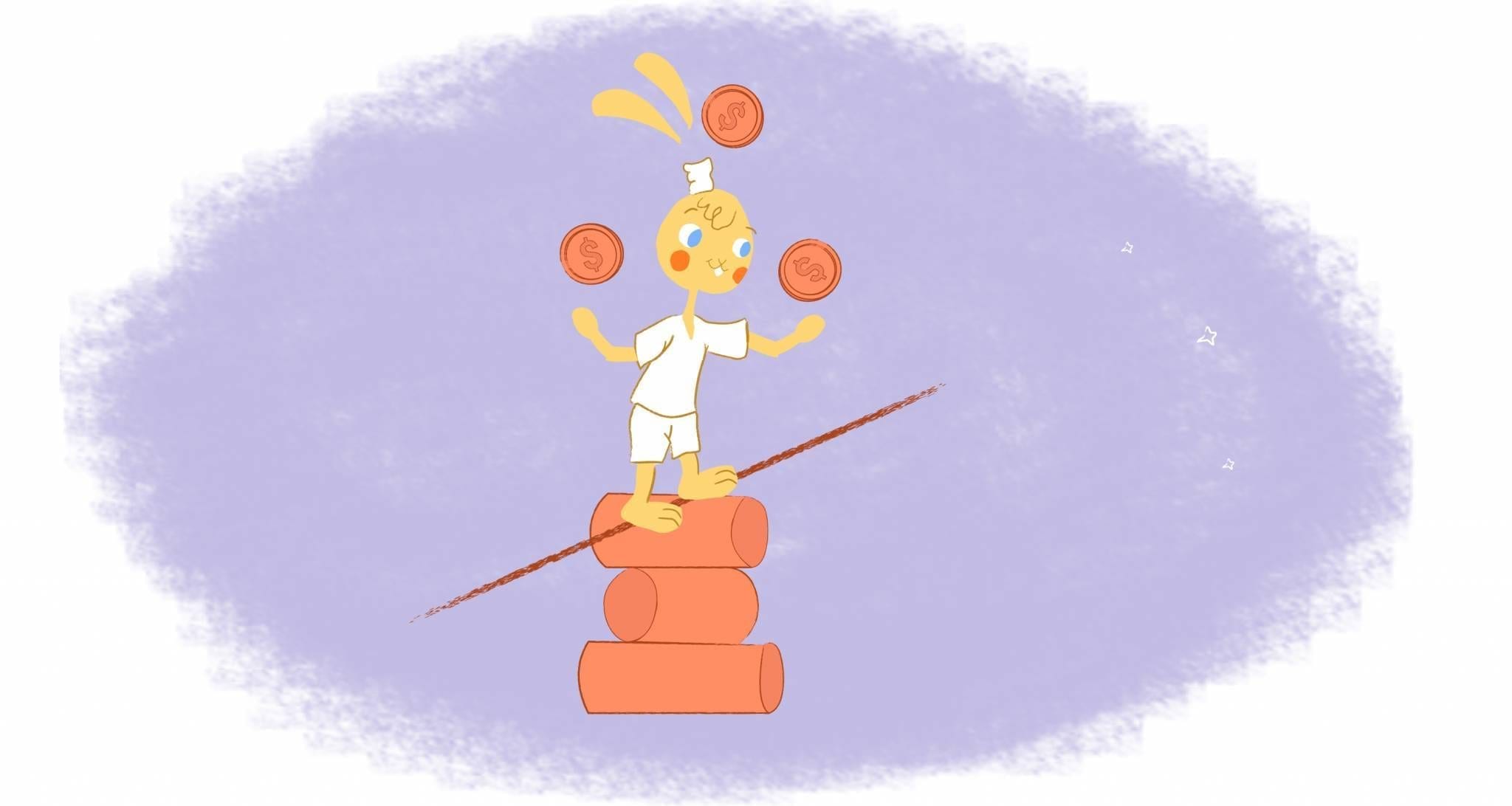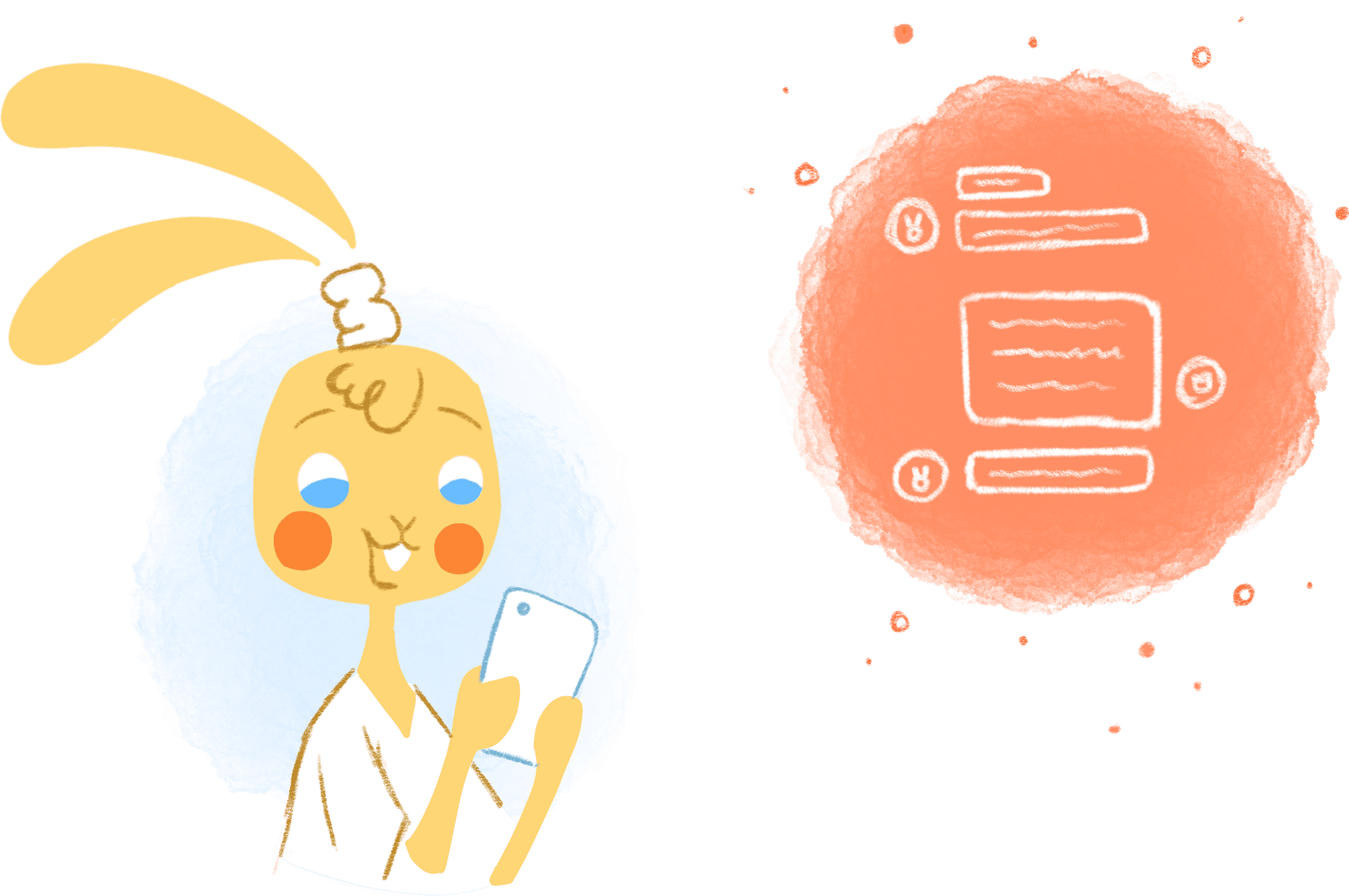

As a freelancer, you need copious amounts of discipline and focus. But as someone who naturally finds it challenging to stay on-task, is it possible to develop the right rhythms and processes to carve out a successful career? Having a distraction free workplace as a freelancer may seem impossible. Today we will teach you how to eliminate workplace distractions!
Understanding Distraction and Procrastination
The human brain is more complex and capable than we’ll ever realize, yet it’s also a limited organ. We each have finite amounts of energy and focus, yet live in a world with overwhelming stimuli and powerful forces that continuously fight for our attention.
“Every time you focus your attention you use a measurable amount of glucose and other metabolic resources. Studies show that each task you do tends to make you less effective at the next task, and this is especially true for high-energy tasks like self control or decision making,” writes David Rock, executive director of the NeuroLeadership Institute. “So distractions really take their toll.”
The concepts of distraction and procrastination go hand in hand – particularly for freelancers with long to-do lists and limited time.
Despite enjoying a flurry of attention in recent years, procrastination isn’t a technology-related problem – though the symptoms of it have been intensified in a world of smartphones, social media, and internet. The truth is that procrastination and habitual hesitation are very common human traits. From ancient Greeks to modern Americans, it’s something mankind has been forced to deal with for centuries. But it’s only in these last few decades that researchers and psychologists have taken the time to explore what procrastination is and how it can be suppressed or avoided.
As author Eric Jaffe explains, “True procrastination is a complicated failure of self-regulation: experts define it as the voluntary delay of some important task that we intend to do, despite knowing that we’ll suffer as a result. A poor concept of time may exacerbate the problem, but an inability to manage emotions seems to be its very foundation.”
Procrastination is basically the absence of progress within a framework that permits progress to be made. If you have a dozen tasks on a to-do list, it doesn’t mean that you accomplish every single task in a workday. If you knock out the first nine tasks, but are unable to get to the tenth, eleventh, and twelfth, this isn’t procrastination – it’s just life. However, the procrastinator takes that list of 12 things, does one of them, rewrites the list, thinks about the list, does something that’s not on the list, shuffles the list around, makes a second copy of it, and then clocks out for the day. That’s procrastination.
Both procrastinators and productive people are exposed to daily distractions. The former give these distractions room to propagate and flourish. The latter have systems in place that allow them to avoid or overpower distractions in pursuit of accomplishing specific tasks and goals.
As a freelancer, being aware of these forces of distraction and procrastination will make you more capable of suppressing your innate tendencies so that you can enjoy optimal productivity.
Distraction Free Workplace Tips for Freelancers
Freelancers have far less structure and accountability than their employed peers and counterparts. Yet despite this unique structure, there’s arguably a greater need for efficiency and output. The question is, how do we maximize productivity in spite of distractions, procrastination, and other magnetizing forces that pull us away from our work?
Though much easier said than done, here are some productivity tips and suggestions designed with freelancers in mind:
Set Goals and Priorities
It’s impossible to be efficient and productive if you lack purpose and direction. Whether you’re a freelancer or a shift worker on an assembly line, goals and priorities are imperative. Without them, you’ll aimlessly meander through your day without any way of measuring or regulating productivity.
Goals have a way of feeding priorities, which subsequently channel energy and enhance productivity. It’s important to have both macro objectives and micro objectives. The former guide you toward the big picture – i.e., earning ten new clients this calendar year – while the latter keep you focused throughout each day – i.e., finish the draft for project “X” by 10 a.m.
When you have specific goals in place, you can attach priorities to them. This provides focus and allows you to proactively accomplish key tasks in the midst of distractions.
Establish Daily Structure
Freelancers lack the daily structure that employees of major companies naturally have built into their days. With no employer telling you when to arrive, how to spend your time, and when you can leave, it’s up to you to establish some structure of your own.
The notion of “structure” often gets a bad rap, but it doesn’t have to be as constricting and rigid as some make it out to be. It’s merely the process of establishing guardrails and street signs to direct your time and flow of energy. It frees you up to focus on the tasks that matter without feeling like you’re constantly bogged down by things that don’t.
For some freelancers, structure looks like establishing specific work hours. For others, it’s as simple as regulating what’s allowed during the workday. (For example, no personal social media usage until all work is done for the day.)
Optimize Your Workspace and Environment
Your immediate workspace and surrounding environment significantly influence your daily productivity. If your productivity is lacking, then it’s entirely possible that you’re exposing yourself to a work environment that isn’t conducive to focus and efficiency.
For starters, your workspace should be free of unnecessary distractions. Remove piles of paper and knickknacks from your desk. Only keep what you absolutely need. If your home office has a window overlooking a street with lots of foot traffic and activity, perhaps you need to put your desk on the opposite wall (so as not to be distracted). If your spouse and kids are in the house all day, it might be worth investing in a white noise machine or loud fan to block out some of the noise.
Some freelancers may discover that they actually need to change up their work environment altogether. If you find it challenging to work from home – or need a secondary workspace to switch things up – try a coworking space.
Every coworking space is unique. Depending on your budget, needs, and location, you may be able to find office space in the form of shared coworking areas, a dedicated desk, a private office, or an entire office suite. Coworking space benefits include the ability to: network with other professionals, maintain a professional image, increase efficiency, embrace creativity, and leverage office perks (like printers, meeting rooms, etc.).
Use Technology Wisely
Technology can be a friend or foe. Used appropriately, certain apps and solutions can help you stay on task by automating mundane, time-consuming tasks and allow you to channel your energy into the creative aspects of your job that truly matter. Used in the wrong capacities, technology can hold you back and distract you from accomplishing the tasks on your daily to-do list.
Using technology wisely is the key. Be honest with yourself and recognize when technology is helping and hurting your output. For example, your personal smartphone is probably a distracting force during the workday. Your project management app, on the other hand, likely enhances productivity and enables you to accomplish more. Removing the former from the equation will elevate your productivity. Continuing to focus on the latter will do the same. It’s all about strategic balance.
Embrace Productive Breaks
People often make the mistake of assuming that productivity is all about doing as much as you possibly can in a short period of time. But this isn’t necessarily true. There’s a time and place for stepping back. In fact, optimal productivity is often reached through strategic breaks where you step away from work and recharge.
Schedule regular breaks into your daily routine, but make sure you’re using this time wisely. Things like meditation, exercise, and creative pursuits (such as painting or writing poetry) can provide practical outlets that refuel you on both a physical and mental level.
Learn How to Say No
As hard as it can be when you’re trying to build up your freelance business, saying “no” is integral in your fight for productivity. You must learn how to tell clients, prospective clients, and business partners no so that you can focus your limited resources on the tasks that provide the highest return.
“Too many freelancers give up their scheduled free time to satisfy clients,” productivity blogger Isabel Goncalves writes. “It’s ok to say no. Focus on living a healthy, balanced life, and that will be reflected in your output.”
Maximizing Productivity in a Distracted Workplace Environment
Productivity will always feel somewhat elusive. But as you become more aware of distractions and the power they have, you can implement smart, proactive habits to avoid procrastination and operate with greater efficiency and output.
As a freelancer, you’re constantly competing against others for clients, reputation, and revenue. Now is the time to cultivate forward-thinking strategies that put you in a position to be successful. Because as distracting as this world can be, you possess the brainpower and capabilities to accomplish incredible things.
Will you allow yourself to maximize productivity and carve out a successful career?











Max Palmer
I'm Max, and I love helping businesses we work with expand their businesses online. Growth potential is what we strive for! I help with press, productivity and overall business needs for business owners.